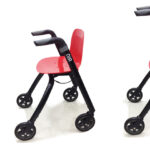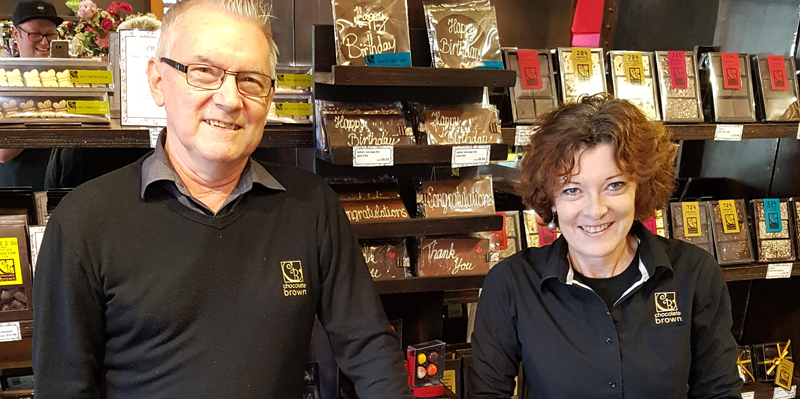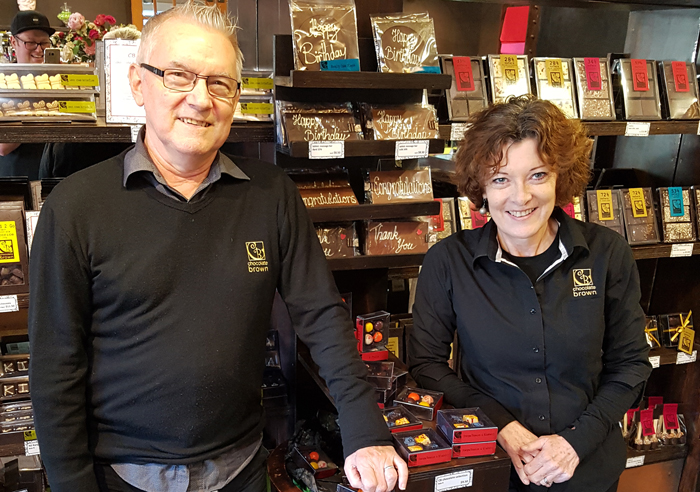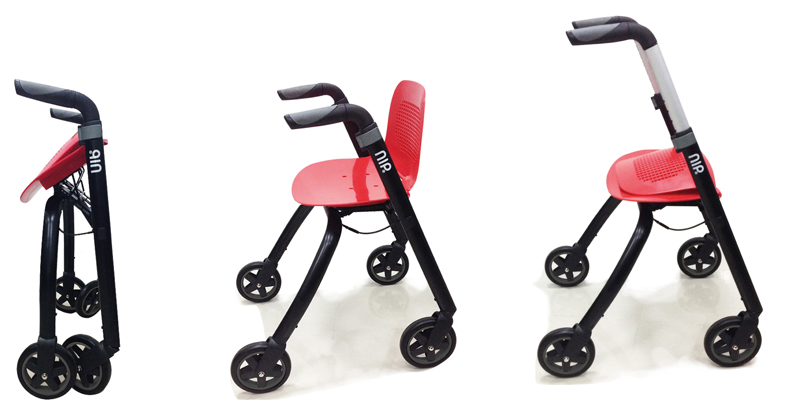Applied knowledge
Mike Parkinson and Jack Meertens excel at food retailing. After playing key roles in the growth of…
Mike Parkinson and Jack Meertens excel at food retailing. After playing key roles in the growth of two high profile fast-food franchise brands, they’re now putting their own money on the line to develop the New York Deli franchise.
In June, a third New York Deli opened its doors in Christchurch.
There were already two others dishing out the signature freshly-made sandwiches and bagels. The latest arrival is located in the new BNZ Centre, part of the city’s revitalised CBD, just a stone’s throw from the earthquake ravaged cathedral.
Behind this innovative New York-themed franchise are two highly experienced food retailers in Mike Parkinson and Jack Meertens. You’d struggle to find anyone more qualified to build a franchised food business.
The first New York Deli was launched by the original owner Ian Coker in Addington in 2003. After the 2011 quakes stalled progress, he opened a second store in Upper Riccarton in 2015.
Mike and Jack subsequently purchased the business in 2016 and wasted no time in opening a ‘new generation’ New York Deli. The initial goal is to have up to six franchises around Christchurch, one in Queenstown, and open around four to five per year nationwide.
While that may seem a monumental task for the two long-time friends and colleagues – it’s not when put in the context of what they’ve achieved within New Zealand’s fast-food franchise industry over recent decades.
Both originally hail from overseas – Mike coming here from the UK in 1972, following an engineering career, primarily with Rolls-Royce. In New Zealand he switched to retail management and consulting, spending 15 years managing business development for Burger King.
That’s where he met Jack, an emigrant from Holland and builder by trade, who had enjoyed a career in the hospitality industry before “falling in love” with New Zealand in 1979.
Together they set up the initial franchising system for Burger King in New Zealand and helped manage the establishment of 65 stores around the country.
In one 12-month period they oversaw the opening of 12 stores.
Five years ago Mike and Jack also managed the set-up of the Carl’s Jnr franchise in New Zealand – helping establish the first seven stores – and they consulted to the award winning Zarbo café in Auckland’s Newmarket.
Their consultancy expertise under the Retail Focus and Food Concepts banners has since attracted a lot of retail and property business to their door. They consult on the retailing of food – be it Quick Service Restaurants (QSR), fast-casual, cafés, dine-in restaurants or food franchises – and representing local or overseas retailers.
Their own franchise
Owning their own franchise had long been on Mike and Jack’s bucket list.
With the two consultants looking for a fresh challenge, they embarked on an 18 month journey to find a business to buy.
New York Deli stood out for its potential; its Hero sandwiches (so named because it seems you have to be a hero to finish one) are legendary, they say.
The two business partners took over in 2016 and set about reinventing the business from the ground up – applying the lessons of BK and Carl’s Jnr to the new venture.
New systems were implemented for the latest store. Mike describes systems as absolutely critical to the success of any franchised fast-food business.
“This is a simple business,” he explains. “It’s all about keeping the mechanics of the business simple [and systemised] – maximising sales and minimising costs.”
It helps that you have a good product, and that you expand on the product range, adds Jack.
“Training and employing the right people is also paramount for success,” he says.
It’s interesting that the staff at New York Deli are predominantly female – confident women who contribute to the warm, relaxed and homely atmosphere, explains Mike.
“This is a major reason why people feel so welcome,” says Mike. “The sandwiches are being made directly in front of customers, so staff are constantly interacting with them.”
The latest CBD store has introduced a new digital sandwich menu with easy-to-read digital menu-boards, which has reduced service time to just two minutes. “That’s way quicker than a drive-thru restaurant!”
There’s also an app that allows customers to pre-order their bagels or sandwiches, and the Point-of-Sale (POS) system has been completely rewritten to allow for multiple store expansion.
And did we mention the coffee? That’s new too, having switched to popular brand Ignite.
A tough game
Mike says New Zealand’s fast-food franchise market is a tough game. “It has become diluted. Despite the fact that the population is still growing, the market will struggle to grow much further.”
But New York Deli is in a different league, say the two business partners – who’re looking for “quality franchises” who want to go on the journey with them.
“It’s now a case of getting the word out and building momentum,” explains Jack.
Their advice for people looking to build a business is to invest heavily in research and planning. Look at the demographics of the market – who are they? How much do they earn? How do you reach them?
And never consider a business based on emotion. “Do that and you’ll end up going broke,” suggests Mike.
He says they had to do a lot of homework on the new CBD store because that part of Christchurch is still being recreated. It’s very much a work in progress.
Future competition is unknown, because it seems that with every new office building completed there are more food options added to the mix.
But they are encouraged by the opening of the new Christchurch Justice & Emergency Services Precinct later this year, which is close to the New York Deli in the BNZ Centre and already bringing more office workers into the central city.
For Mike and Jack, a lot of their approach to food retail comes down to ‘gut feel’.
“You can spend 12 months doing your homework and analysis, but at the end of the day, if your gut doesn’t tell you its right, then it’s not right,” says Mike.
“You have to be absolutely certain.”
As for keeping franchisees happy, Jack says it all comes down to money and support.
“That means strong profits as well as excellent systems and training to take away the stress.”





